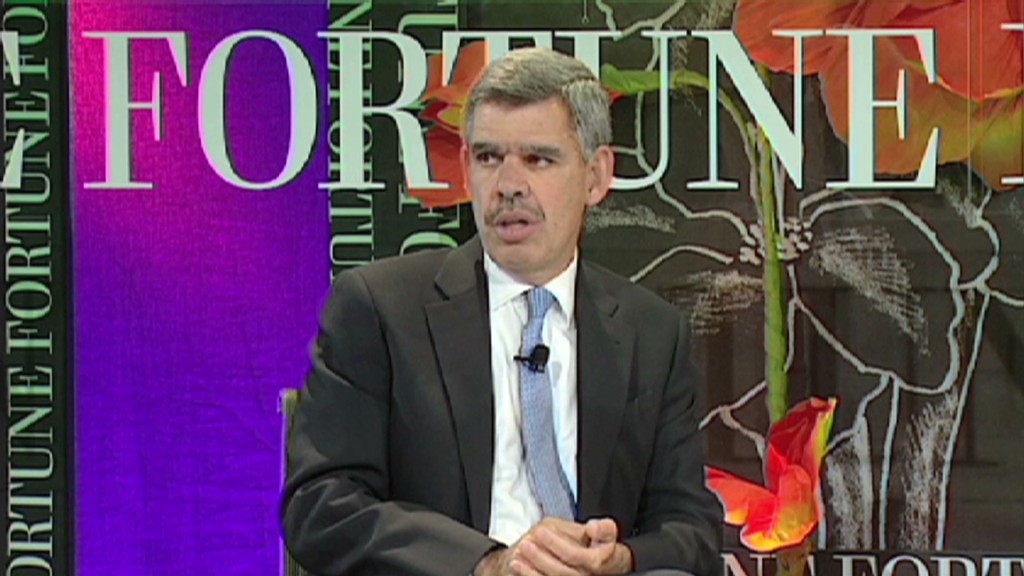
A tentative recovery in the global economy is running out of steam and growth could weaken further due to Europe's debt crisis and inaction over a looming fiscal squeeze in the United States, the International Monetary Fund said Monday.
In its latest World Economic Outlook, the IMF predicted global growth of 3.3% this year, down 0.2% from July. The IMF was also more pessimistic about 2013, when it expects growth of only 3.6%, down from its previous forecast of 3.9%.
"The recovery has suffered new setbacks, and uncertainty weighs heavily on the outlook," the IMF said. "A key reason is that policies in the major advanced economies have not rebuilt confidence in medium-term prospects."
The U.S. economy is projected to grow 2.2% this year and 2.1% in 2013, according to the report. In July, the IMF projected 2% growth this year and 2.3% in 2013.
The IMF said growth would be even weaker than forecast if eurozone leaders fail to take further measures to support ailing members of the 17-nation currency union, and if the United States drives headlong over the so-called fiscal cliff -- a $7 trillion program of automatic tax increases and spending cuts that start taking effect at midnight on Dec. 31.
"If for some reason we actually jump all the way down the [fiscal] cliff, this would be an enormous fiscal contraction," Olivier Blanchard, the IMF's chief economist, told CNN on Tuesday. "It would be a U.S. recession, and God knows what would happen to the world."
The European Central Bank gave markets a shot in the arm last month when it agreed to buy potentially unlimited amounts of government bonds, providing an effective back stop for eurozone member states facing crippling borrowing costs.
The IMF said it was now up to European leaders to play their part. Specifically, the IMF said the recently activated €500 billion European Stability Mechanism "must intervene in banking systems and provide support to sovereigns."
The ESM, which replaced a temporary fund that backed bailouts for Greece, Portugal and Ireland, is a key component of the "breakthrough" agreement that European Union leaders announced in June.
Draghi to euro policymakers: It's your turn
It's also crucial that plans to create a banking union and achieve greater fiscal integration move forward, said the IMF.
Despite Germany's resilience, the eurozone economy is mired in recession and its prospects of returning to growth in 2013 have darkened substantially. The IMF now expects the eurozone to expand by just 0.2% next year, compared with 0.7% in July.
The outlook for the United States was more stable, the IMF said, trimming its forecast for 2013 by just 0.1%. But that assumes policymakers take prompt action to avert the fiscal cliff and raise the debt ceiling.
"If they fail to do so, the U.S. economy could fall back into recession, with deleterious spillovers to the rest of the world," the IMF said.

Growth in China should fall this year to 7.8%, from 9.2% in 2011, due to tighter credit conditions, weaker exports, and a return to a more sustainable pace of public investment.
The IMF said it should recover in 2013 to around 8.2% as domestic demand picks up in response to a partial easing of monetary policy.


